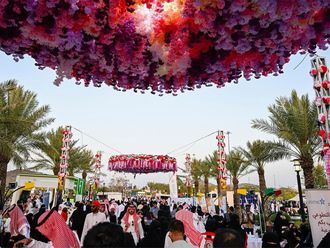
Dubai: Moon-Sighting Committees and the public across Muslim nations tried to spot the Shawwal moon on Monday, April 8, 2024.
The sighting of the crescent moon determines the first day of Shawwal, which marks Eid Al Fitr.
Following a lunar system with 12 months, the Islamic calendar observes Ramadan as the ninth month, culminating in Eid Al Fitr to celebrate the end of Ramadan.
Here's the list of countries that have declared the first day of Shawwal:
Saudi Arabia
Saudi Arabia announced that Eid Al Fitr, which marks the end of the holy month of Ramadan, will begin on Wednesday, April 10 in the kingdom.
According to Saudi media, tomorrow, April 9 will be the last day of Ramadan and Wednesday will be the first day of Shawwal, marking the first day of Eid Al Fitr.
Qatar
Qatar has confirmed, tomorrow, Tuesday, April 9 will be the last day of Ramadan and Eid Al Fitr will be celebrated on Wednesday, April 10.
Bahrain
Bahrain will celebrate the first day of Eid Al Fitr on Wednesday, April 10.
Kuwait
Kuwait has also announced that tomorrow, April 9 will be the last day of Ramadan and Wednesday will be the first day of Shawwal.
Australia
Australia has officially announced Wednesday as the first day Eid Al Fitr, marking the end of Ramadan and the beginning of the month of Shawwal.
Following inquiries to local and global observatories, the Australian Fatwa Council has confirmed that the new moon will be born on Tuesday, April 9, 2024, at specific times in Sydney and Perth. Consequently, Tuesday, April 9, will be the last day of Ramadan, and Eid Al Fitr will be celebrated on Wednesday, April 10, 2024.
The Fatwa Council said that the determination of Eid Al Fitr's date is based on the calculated birth of the moon before sunset, the duration of the moonset after sunset, and the possibility of moon sighting. This method aligns with approaches adopted by prominent global scholars' councils.
While recognising and respecting diverse opinions within the Muslim community, the Australian National Imams Council and the Australian Fatwa Council emphasize unity in preserving common values and interests.












